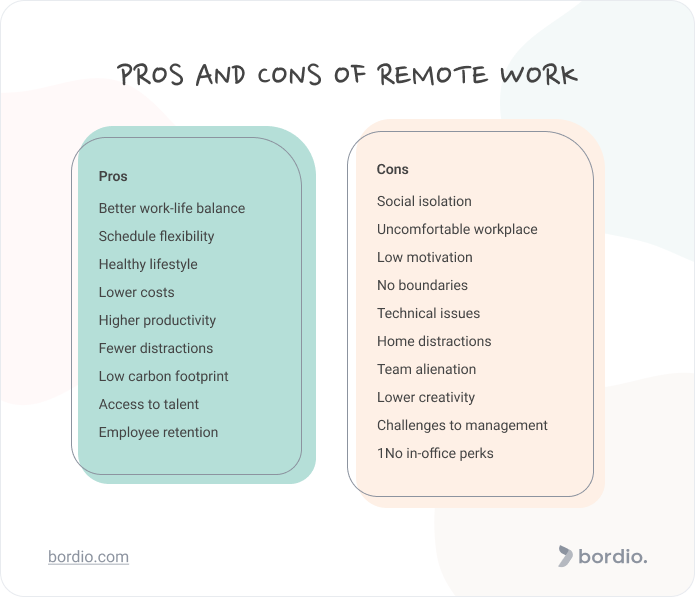In recent years, remote work has become increasingly popular in the tech industry. The ability to work from anywhere has many advantages, but there are also some drawbacks to consider. In this article, we will explore the pros and cons of remote work for tech professionals.
Pros of Remote Work
1. Flexibility
One of the biggest advantages of remote work is the flexibility it offers. Tech professionals can work from anywhere in the world, allowing them to choose their own working hours and create a schedule that suits their needs. This flexibility can lead to increased productivity and a better work-life balance.
2. Cost Savings
Remote work can also save tech professionals money. By working from home, employees can save on commuting costs, lunches out, and professional attire. This can add up to significant savings over time.
3. Increased Productivity
Many tech professionals find that they are more productive when working remotely. Without the distractions of a traditional office environment, employees can focus on their tasks and get more work done in less time.
4. Better Work-Life Balance
Remote work can also lead to a better work-life balance. Tech professionals can spend more time with their families, engage in hobbies, and take care of themselves without the stress of a long commute or rigid office hours.
Cons of Remote Work
1. Isolation
One of the biggest drawbacks of remote work is the potential for isolation. Tech professionals who work remotely may miss out on the social interaction and collaboration that comes with working in an office. This can lead to feelings of loneliness and disconnection.
2. Communication Challenges
Communication can also be a challenge for remote tech professionals. Without face-to-face interactions, it can be difficult to convey tone and emotion in written messages. This can lead to misunderstandings and miscommunications within a remote team.
3. Distractions
Working from home can also lead to distractions. Tech professionals may find it difficult to separate their work and home lives, leading to decreased productivity and work-life balance. It can be tempting to take breaks to do household chores or watch TV, resulting in less focused work time.
4. Limited Networking Opportunities
Remote work can limit networking opportunities for tech professionals. Without in-person events and meetings, it can be challenging to build relationships with colleagues and industry peers. This can make it harder to advance in one’s career and stay informed about industry trends.
Conclusion
While remote work offers many benefits for tech professionals, it is important to consider the potential drawbacks as well. By understanding the pros and cons of remote work, tech professionals can make informed decisions about whether remote work is the right choice for them.
Ultimately, remote work can be a great option for tech professionals looking for flexibility, cost savings, and increased productivity. However, it is important to address potential challenges such as isolation, communication issues, distractions, and limited networking opportunities. By weighing the pros and cons of remote work, tech professionals can make the best choice for their careers and lifestyles.
